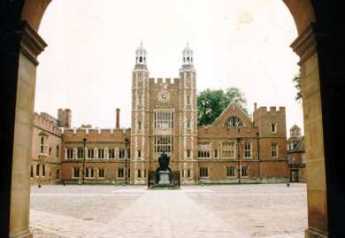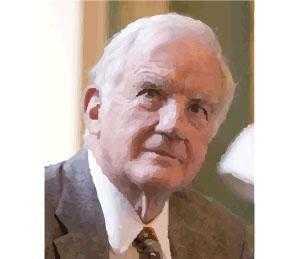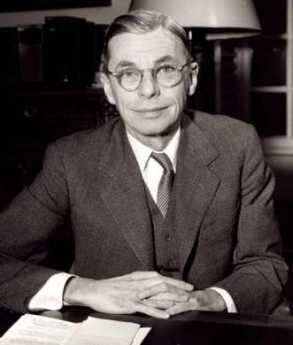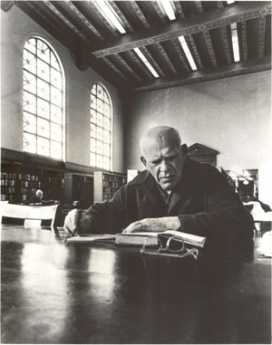Related Topics
Academia in the Philadelphia Region
Higher education is a source of pride, progress, and aggravation.
Reminiscences
"The past is never dead. It's not even past." -- William Faulkner, Requiem for a Nun
New Jersey (State of)
 The Garden State really has two different states of mind. The motto is Liberty and Prosperity.
The Garden State really has two different states of mind. The motto is Liberty and Prosperity.
Education in Philadelphia
Taxes are too high, but the tax base is too small, so public education is underfunded. Drug use and lack of classroom discipline are also problems. Business and employed persons have fled the city, must be induced to return. Deteriorating education, rising taxes and crime are the immediate problems, but the underlying issue is lack of vigor and engagement by the urban population itself.
Preppies of the Future?

|
| Sir Peter Hall |
Modern western civilization had its origin, or revival if you prefer, in the Italian town of Florence six or seven hundred years ago. The rise and fall of Florence makes a case example for the two preeminent scholars of civilizations, Peter Hall and Arnold Toynbee. Both of them, for obvious reasons, are British. Toynbee intones the theme that civilizations destroy themselves by overextending their best features. Peter Hall makes that into less of a one-way street. Civilizations flourish in the first place because of competitive tension between two conflicting aspirations; eventual victory by either one starts success on a path of unrestrained decline. In slightly different ways, both of them predict that success leads to failure. Not that failure inevitably follows success, but those notable failures are usually caused by success.

|
| Florence |
Florentine civilization grew out of the interaction, conflict, and intermarriage, of pugnacious aristocrats with sly calculating merchants. For a time, an optimum balance was achieved, and Florence dominated the Western world. Centuries later, much the same thing happened to England as feudalism grappled, first with Elizabethan maritime buccaneering and subsequently with the Industrial Revolution. That's where Eton comes in.

|
| Eton |
For American purposes, it is enough to focus on two Etonian mottos. Lumping both reckless aristocrats and scheming merchant princes, Eton exists "to exert a civilizing influence upon those who are destined to rule." Eton expresses no pretense about diversity or talent; Eton is not a trade school, a place to make useful contacts, or an elevator for upward social mobility. Labor governments, of course, do not share such attitudes, enduringly defended by Wellington's proclamation, that "The battle of Waterloo was won on the playing fields of Eton." That school aspires to teach more than Latin or trigonometry; it teaches duty and courage. And, as needed, it works. The graduate of a similar school Winston Churchill, reminding the nation that never have so many owed so much to so few, was delivering a subliminal illustration that leadership grows from education in many different ways.

|
| Derek Bok |
So things had not changed much in several hundred years, from Florence to Eton. It became accepted that a nation needs leaders who are smart (no charges of Light Brigades, please), it also needs unflinching bravery, in various combinations at different moments. And then, a research institute very near Lawrenceville, New Jersey, and two Harvard presidents, Conant and Bok, added a new requirement just before the Second World War. By devising multiple choice tests whose results seemed to parallel later academic success in college,

|
| Conant |
it became possible to identify myriads of ordinary American children who seemed to have equal or greater potential than the children of wealth and success. If the leadership pool needs to be enlarged, that's where new entrants should come from. Besides, examples have always abounded of the children of famous people who, even with an outstanding education, bitterly disappointed their expectations. Perhaps, by the application of scientific testing combined with judicious financial aid, it might be possible to civilize the unmentionable social Darwinism long visible in competitive concentrations of hormonally active youth. Without being too obvious about it, perhaps we could create a race of supermen by placing genetically superior candidates of both sexes together, train them well, and let propinquity do the rest. As this tacit system has evolved over nearly a century, the inbreeding has come to depend less on the hidden factors which encouraged success in the parents, and more on whatever genetic skills are linked to adolescent success in multiple-choice examinations. And the expansion of this idea into the unused talents of girls is genetically thwarted by the tendency of professional women to have fewer children by delaying the birth of the first child; a sort of reverse Darwinism induced by prizing professional talents over reproductive ones.

|
| Eric Hoffer |
The American pragmatic way, and the scientific method, both attempt to make decisions by seeing what works. Eric Hoffer, the San Francisco writer, once visited Lawrenceville and pointed out one thing that definitely works. Rich men, he said, marry beautiful women. And so, their children tend to be unusually handsome. It's a circular system that is undeniably at work. Without any conscious scheming by sociologists, an unnerving pragmatism is already at work getting more of whatever it is we need, into leadership positions. Unfortunately, this fiendishly clever system for influencing the genetic choices of promising candidates cannot unequivocally claim to produce long-term success. Like the British royal family, it seems to some the proportion of failed marriages is too high in our system, the incidence of recreational drugs and alcohol is too great, and the number of graceful drifters too numerous among the alumni. Perhaps that is only invidious opinion, based on contrasting unusual opportunities with the ultimate consequences for a fundamentally normal collection of people. Perhaps, if we were truly objective, we might discern a second-generation production of Nobel Prize winners, Senators, Presidents, Olympic champions that might well justify the opportunities bestowed on the bloodlines. What Lawrenceville may need, to defend itself, is a systematic longitudinal study of outcomes that would demonstrate, let us say to Princeton, that more of our graduates are entitled to admission there. Or, maybe, that's the wrong goal entirely. Perhaps graduates of Lawrenceville, Andover and Exeter don't need Yale, Harvard and Princeton . Perhaps they need a different sort of college. Maybe they should skip college entirely, and go on to graduate schools. Instead of being preparatory schools, perhaps they should be finishing schools. There was a time when rich men married beautiful women; the time is coming when beautiful women seek out nerds to marry. Society has not charged academia with a duty to promote such an outcome, once suggested by Bernard Shaw to the beautiful chorus girl. "What if we produced children with my looks and your intellect?"
Or, perhaps a longitudinal study would show something even more important, best perceived by ones who passed through the system before there was a SAT. Perhaps the basic premises of the SAT score need to be confronted, along with the cerebral ideals of Presidents Bok and Conant. Perhaps, beyond a certain point, higher SAT scores just lead to more schizophrenia and depression, or other counter-productive outcomes of inbreeding. Perhaps we should have another look at J. P. Morgan's system for identifying leaders. That old walrus-nose swept schoolishness away. "Brains don't make you rich," he snorted. "Character does."
REFERENCES
| A Study of History Arnold J. Toynbee ISBN-13: 978-0195050806 | Amazon |
| Cities in Civilization: Peter Hall: ISBN-13: 978-0394587325 | Amazon |
| Why the Private School?: Allan V. Heely: ASIN: B000GR1QS2 | Amazon |
Originally published: Thursday, June 22, 2006; most-recently modified: Friday, May 31, 2019